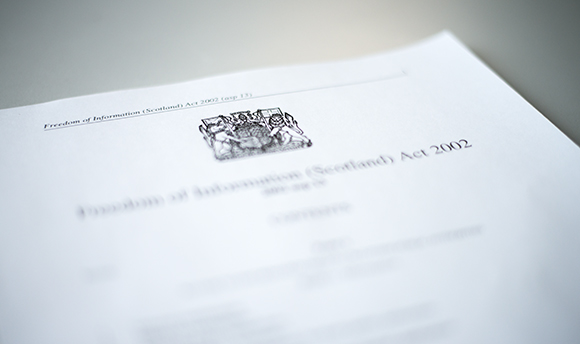QMU Management of Speakers and Events Policy & Procedure
Freedom of expression within the law is central to the concept of a university. To this end, Queen Margaret University seeks to foster a culture which permits freedom of thought and expression within a framework of mutual respect.
Freedom of speech is not an unqualified privilege and the University is subject to a range of legislation and obligations that set limits on the lawful exercise of freedom of speech.
In determining whether an external speaker should be allowed to speak on University premises or at University-branded events, or if an event is permitted to proceed, the University will balance the right of freedom of speech and academic freedom, and its obligations under the relevant legislative and guidance frameworks.
The presumption will be to permit external speakers to speak on University premises or at University-branded events with appropriate mitigation or safeguards in place where necessary, except for situations in which the University determines that:
- the presence of a speaker presents an unacceptable risk to the health, safety and wellbeing of its community, or
- the presence of a speaker is likely to result in criminal or civil law being broken, or;
- the presence of a speaker is likely to leave the university is breach of its statutory obligations.
The University’s responsibilities with regard to events and speakers are governed by a wide range of legislative requirements including:
- The duty to have particular regard to the need to ensure freedom of speech, including its obligations under the Human Rights Act (1998).
- The duty to protect academic freedom (Further and Higher Education (Scotland) Act 2005).
- The duty to prevent people being drawn into terrorism (Counter Terrorism and Security Act 2015).
- The duty (Terrorism Act, 2000) not to arrange or assist in arranging a meeting in the knowledge that the meeting is to support the activities of a proscribed1 organisation, or is to be addressed by a person who belongs or professes to belong to a proscribed organisation.
- The duty to eliminate unlawful discrimination against certain groups, and advance equality of opportunity between groups, (Equality Act 2010).
- Obligations under criminal law eg with regard to use of threats, incitement of violence, inflaming religious or racial hatred.
- Obligations under charities law, i.e. whether the proposed activity is consistent with the University’s charitable objects.
- A general duty of care to students, staff and visitors, including avoiding placing students, staff or visitors in situations that may expose them to risks to their health and safety.
The purpose of this Policy is to set out arrangements for the management of events which are held on University premises, or under the auspices of the University, so that the University can fulfil its legal obligations with regard to speakers and events, while maintaining at all times its commitment protecting and promoting freedom of thought and expression within the law.
This Policy applies to all staff and students of the University, to any Third Party organising an event, and to any person in attendance at any event which has been duly authorised under this policy.
The Policy applies to the management of events that are organised on University premises, or at a University-branded event at any location.
The policy is supported by an External Speaker Code of Conduct, which is set out in Appendix A.
Event organisers have a responsibility to assist the University in meeting its statutory duties by providing relevant information and complying with the provisions of this policy.
The Deputy Director of Commercial Services has a responsibility for receiving room booking requests/event notifications; requesting further information from the event organiser as required; ensuring that requests/notifications have been competently assessed against the provisions set out in Section 5 below and referring higher risk events to the University Prevent Group for further consideration.
The University Secretary has ultimate responsibility for granting permission for the University to be associated with an event or speaker and to agree the provision of University accommodation for an event or speaker.
The University Prevent Group has responsibility for supporting the University Secretary in the exercise of the responsibility set out above.
External Speakers have a responsibility to comply with the External Speaker Code of Conduct.
Any staff member or student organising an event on University premises that involves an external speaker must follow the External Speaker Assessment Process detailed below BEFORE booking the speaker or publicising the event.
The majority of external speaker requests will be straightforward and can be handled entirely at a local level. In these cases, following the steps outlined in the Local assessment of proposed external speaker(s) below will suffice.
Any cases that are complex, or require further consideration, should be referred to the University Secretary. It is expected that the referral process will apply in a minority of circumstances only i.e. to those events or speakers deemed to be higher-risk under the provisions of this policy.
The provisions set out above will apply also to the acceptance by the University of a booking made by a third party.
Prior to the confirmation of any external speaker, the staff or student member will be responsible for assessing the speaker against the following set of questions:
Question 1: Has the speaker previously been prevented from speaking at Queen Margaret University, another University or similar establishment or previously been known to express views that may be in breach of the External Speaker Code of Conduct?
Question 2: Does the proposed title or theme of the event present a potential risk that views/opinions expressed by speaker(s) will be in breach of the External Speaker Code of Conduct?
Question 3: Is the proposed speaker/theme likely to attract attendance from individuals/groups that have previously been known to express views that may be in breach of the External Speaker Code of Conduct?
Question 4: Is it likely that the speaker or event will attract negative press or media attention to the University?
If the answer to all the questions is NO, the event booking may proceed, with the event organiser and speaker being issued with the Code of Conduct as part of the Terms and Conditions of that booking.
If the answer to any question is YES or UNCLEAR, the organiser must follow the procedure below for a review to be undertaken by the University Prevent Group.
The provisions set out above will apply also to the acceptance by the University of a booking made by a third party.
In the event that concerns are raised by the local assessment, the details of the speaker/event must be referred to the University Secretary. In her role as Convener of the University's Prevent Group, the University Secretary will raise the matter with the Group, who will consider the speaker/event and provide guidance to the University Secretary.
If the University Secretary, having considered the available information, believes that there is a demonstrable and serious risk that the speaker and/or those at an event may break the law, pose a risk to the University’s reputation, breach the University’s statutory duties - including the need to prevent people being drawn into terrorism - and/or will pose a demonstrable and significant risk to the wellbeing of students, staff or visitors, she may require that certain conditions are met or, in exceptional circumstances, may refuse to allow the event to go ahead.
The range of conditions that may be imposed by the University Secretary include:
- Varying the time and location of the event from the original plan.
- Requiring a different person to chair the event
- Making the event all-ticket.
- Requesting an advance copy of any guest list.
- Placing restrictions on numbers.
- Enhancing security arrangements.
- Imposing conditions on how the event is to be advertised.
- Mandatory attendance of specified University representatives.
- Imposing conditions on how the event is run.
- Requesting a running order and script of what is likely to be said in advance and requiring an undertaking that these are adhered to.
- Briefing the chair in advance to make clear their responsibilities under the law.
- Restricting what materials are available at the event.
In some circumstances, after full consideration of possible mitigating actions, there may be grounds for refusing a request. Grounds for refusal may include that:
- the speaker professes to belong to a proscribed organisation (broken link) or (following appropriate information gathering, and potentially seeking express assurances from the speaker/organisers if appropriate) it is believed the speaker is intending to invite support for such an organisation or its activities.
- having obtained and considered input as appropriate, it is believed to be in the interests of public safety, the prevention of disorder or crime or the protection of those persons lawfully on university controlled premises that the event does not take place.
- following appropriate input from relevant bodies and consideration of available evidence it is concluded that: reasonable steps cannot be taken to prevent the speaker from expressing views that are contrary to the law; that reasonable steps cannot be taken to prevent the speaker from encouraging, assisting or committing criminal acts; that reasonable steps cannot be taken to prevent the speaker from putting forward views or ideas that unlawfully infringe the rights of others or unlawfully breach the University's equality duties.
Decisions of the University Secretary will be communicated to the event organiser within 2 weeks of the event being referred to the University Secretary.
A record will be kept of all decisions taken in relation to external speaker requests and will be held securely in accordance with the University’s Data Protection Policy. All recommendations made by the University Prevent Group and decisions taken by the University Secretary will be recorded, together with a summary of the reasons given.
An annual report on numbers and types of decision taken will be submitted to University Court as part of the University’s annual statement on compliance with the Counter Terrorism and Security Act 2015.
Appeals against the decision of the University Secretary must be made in writing to the Principal and Vice-Chancellor within 10 working days of the decision being communicated to the event organiser.
The appeal should state clearly the grounds on which the appeal is being made.
The case will be considered by the Principal and a decision provided within 10 working days.
Individuals or groups found to have breached this policy may be subject to penalties (removal of particular privileges or formal disciplinary proceedings) or, where breaches of criminal law occur, referral to the police.
This policy will be reviewed periodically by the Executive Board.
- Version 1 - March 2016
- Version 2 - EB review July 2016
- Version 3 - November 2016
- Version 4 – April 2017
[form]


